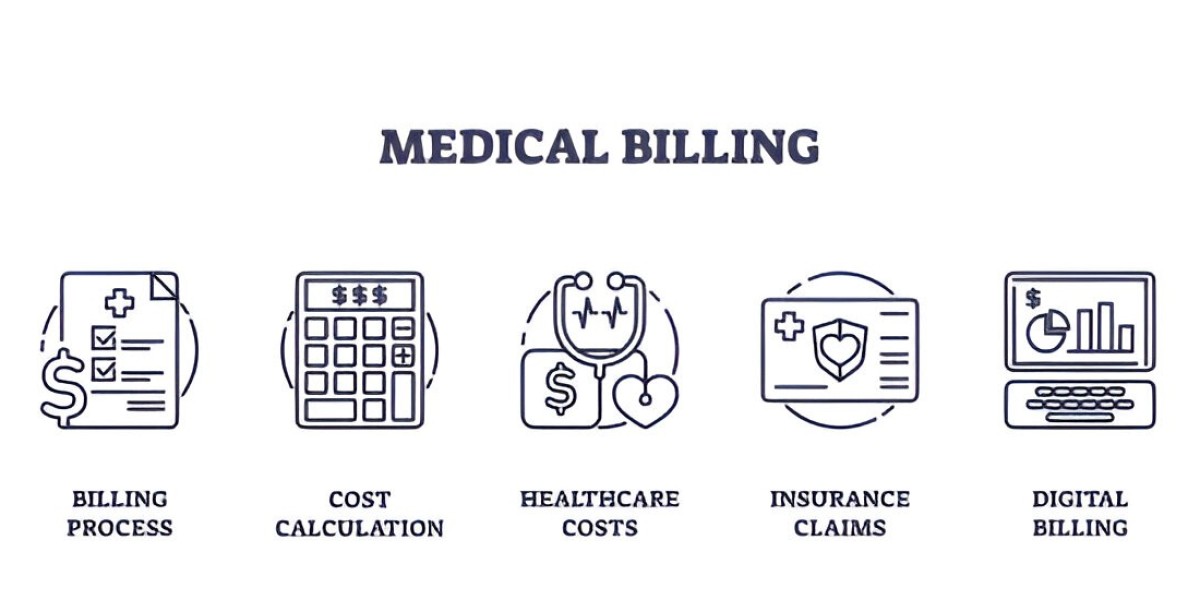Medical billing is a cornerstone of healthcare financial stability, but it becomes increasingly complex when dealing with highly specialized fields. Neonatology and neurosurgery are two of the most intricate and sensitive specialties in medicine. Both deal with vulnerable patient populations and life-saving interventions, where every detail of documentation and coding matters.
Unlike general outpatient care, these specialties require advanced billing expertise to ensure compliance with payer rules, accurate coding, and timely reimbursements.
Part 1: Neonatal Billing Services
The Unique Nature of Neonatal Care
Neonatology focuses on the medical care of newborns, particularly premature or critically ill infants. Neonatal Intensive Care Units (NICUs) are specialized hospital units where these fragile patients receive advanced care. Services range from respiratory support and intravenous therapy to complex surgical procedures.
Because every newborn case can involve multiple diagnoses, frequent interventions, and multi-disciplinary collaboration, billing becomes significantly more complex than standard pediatric or adult billing.
Core Challenges in Neonatal Billing
Complex ICD-10 Coding
Neonatal patients often have multiple diagnoses, including prematurity, congenital anomalies, sepsis, or respiratory distress syndrome.
ICD-10 coding for neonates requires precise detail — for example, differentiating between a 25-week premature birth and a 34-week birth, as reimbursement levels differ.
Bundling vs. Unbundling of Services
Neonatal care often involves daily management, procedures, and consultations.
Determining whether services should be billed as bundled care or separately is a challenge that can lead to denials if handled incorrectly.
Maternal vs. Neonatal Billing Confusion
One of the most frequent errors in NICU billing is mixing maternal and neonatal charges.
For example, billing the mother’s diagnosis under the infant’s claim can cause immediate rejection.
High Documentation Demands
Providers must document daily progress, ventilator use, lab monitoring, and specialized interventions.
Missing notes can lead to undercoding or denials.
Payer-Specific NICU Rules
Insurance companies have strict requirements for NICU levels of care.
Misclassification between Level II, III, and IV NICU services can drastically affect reimbursement.
Common Denial Reasons for Neonatal Claims
Incomplete birth history (gestational age, birth weight).
Improper use of CPT codes for critical care vs. standard newborn care.
Duplicate billing when multiple physicians provide care.
Errors in reporting modifiers for prolonged services.
Incorrect patient demographic information.
Best Practices in Neonatal Billing Services
Standardized Templates: Use NICU-specific EHR templates that capture gestational age, interventions, and daily progress.
Specialized Coders: Employ coders with pediatric/neonatal training to reduce errors.
Pre-Billing Audits: Conduct audits before claim submission to catch mistakes.
Denial Management Systems: Have processes in place to quickly identify, correct, and resubmit denied claims.
Outsourcing: Many hospitals outsource neonatal billing to firms specializing in NICU services to ensure compliance and maximize reimbursement.
Part 2: Neurosurgery Medical Billing Insights
Why Neurosurgery Billing Is Among the Most Complex
Neurosurgery involves some of the most high-risk and high-cost procedures in medicine, ranging from spinal decompressions and tumor removals to aneurysm repairs and trauma interventions. Each surgery requires multiple steps, detailed operative notes, and precise coding.
Because neurosurgical procedures are expensive, payers scrutinize claims heavily, making even minor errors a potential cause for denials or audits.
Key Challenges in Neurosurgery Billing
High-Value Claims and Scrutiny
Neurosurgery claims often involve implants, extended operative times, and multiple procedures.
These high-dollar claims are flagged more often for audit.
Complex CPT and ICD-10 Codes
Differentiating between spinal fusion codes, craniotomy procedures, or minimally invasive techniques requires expert coding knowledge.
Misuse of a single modifier can change reimbursement drastically.
Global Surgical Package Rules
Neurosurgery often involves lengthy post-operative care.
Knowing what falls under the global surgery package and what can be billed separately is critical.
Prior Authorization Delays
Advanced imaging, spinal implants, or high-cost devices often require prior authorization.
Failure to obtain approval leads to denied claims.
Modifier Usage
Multiple surgeons, staged procedures, and bilateral operations demand careful application of modifiers (e.g., -62, -50, -59).
Misapplied modifiers are a leading cause of denials.
Common Denials in Neurosurgery Claims
Lack of medical necessity documentation for spinal surgeries.
Missing operative notes or incomplete descriptions.
Incorrect coding of staged or repeat procedures.
Errors in global surgical period billing.
Failure to link imaging to corresponding diagnoses.
Best Practices for Neurosurgery Billing
Detailed Operative Reports: Ensure that surgeons provide comprehensive notes with diagnosis, procedure, and medical necessity clearly outlined.
Use of Certified Neurosurgery Coders: Coders trained in neurosurgical procedures understand the nuances of spinal vs cranial codes.
Modifier Mastery: Train billing staff on correct modifier application to prevent denials.
Pre-Authorization Management: Establish dedicated teams for securing prior authorizations on time.
Routine Coding Audits: Frequent audits help identify missed charges and ensure compliance.
Shared Insights Between Neonatal & Neurosurgery Billing
While neurosurgery and neonatal billing services seem vastly different, they share several billing similarities:
Specialized Knowledge Required: Both require coders with deep specialty-specific expertise.
High Scrutiny from Payers: Due to high costs, claims undergo extra payer review.
Multi-Disciplinary Care: Both specialties involve collaboration between multiple providers, increasing the risk of duplicate or missed billing.
Compliance Risks: Documentation gaps or coding errors can lead to audits or penalties.
Role of Outsourced Billing Services
Given the challenges, many hospitals and practices partner with outsourced specializing in neonatal and neurosurgery billing services. Benefits include:
Higher first-pass claim acceptance rates.
Faster reimbursements.
Reduced administrative burden on clinical staff.
Lower compliance risks.
Access to billing professionals trained in specialty coding.
The Future of Specialty Medical Billing
AI-Assisted Coding: Artificial intelligence will help identify errors, predict denials, and suggest correct codes.
Telehealth Expansion: Neonatology consultations and neurosurgery follow-ups via telehealth will create new billing categories.
Increased Patient Responsibility: With rising deductibles, collecting from patients will be an increasing focus.
Value-Based Care Models: Reimbursements will continue to shift toward outcomes-based care, requiring advanced billing strategies.
Conclusion
Both neonatology and neurosurgery represent the most challenging ends of the billing spectrum. Neonatal billing requires precision in capturing fragile patient data, NICU levels of care, and accurate coding of newborn conditions. Neurosurgery billing, on the other hand, involves high-dollar claims, complex procedures, and strict payer scrutiny.
The overlap in these fields is clear: both demand accuracy, compliance, and efficiency. Investing in specialized billing expertise, whether in-house or outsourced, ensures financial sustainability while allowing providers to remain focused on their primary mission — saving lives.








